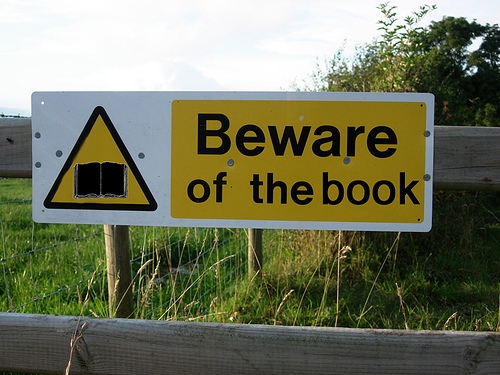In the last week of September, the American Library Association (ALA) hosts Banned Books Week, an event dedicated to bringing attention to the harmful effects of censorship, and celebrating free, open access to information and ideas.
Many banned books are now considered indispensible contributions to literature (as seen in the ALA list of banned classic books).
Many of these books are bestsellers, have won countless awards, and are still banned.
The Concord Public Library banned Mark Twain’s The Adventures of Huckleberry Finn in 1885. Upon receiving word of this ban, Twain wrote a jovial letter to his editor, exclaiming, “Apparently, the Concord library has condemned Huck as ‘trash and only suitable for the slums.’ This will sell us another twenty-five thousand copies for sure!”
While we won’t go so far as to claim that your book requires controversy to be a success, we do acknowledge that controversy brings attention, and with attention comes sales.
Humans are hard-wired to think in binary. Either we love something, hate something, or we don’t care at all. If someone takes it upon himself or herself to get your book banned, there are many other people who will come to your defense, and many more who will buy it just to see what’s getting someone else so riled up.
You shouldn’t write just to create controversy, but even J.K. Rowling has incited some tense discussions about censorship and content.
If you think that your content might cause some controversy (and it often will!), it’s good to be prepared, so you know what might be coming.
Ask yourself:
- What movements are my book supporting, even indirectly?
- What movement is my book participating in?
- What movement or mindset does my book go against?
We’ve talked before about not feeding the trolls, which you shouldn’t, but if you have attention coming to you that’s negative, shake it off, and focus your marketing efforts on the members of the movements that will LOVE your project, rather than hate it.

